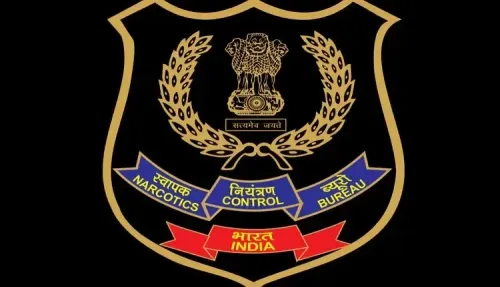What Causes Overeating in Those with Memory Issues?

Synopsis
Key Takeaways
- Identification of specific brain cells associated with meal memory.
- Understanding the connection between memory issues and overeating.
- The potential for new strategies in obesity treatment.
- The role of the ventral hippocampus in meal experiences.
- Importance of enhancing meal memory formation.
New Delhi, June 11 (NationPress) A group of scientists from the US has identified a particular cluster of brain cells that might clarify why individuals experiencing memory difficulties tend to overeat. The research indicates that those who frequently forget their recent meals can experience heightened hunger, potentially leading to disordered eating patterns.
Researchers at the University of Southern California revealed that these brain cells are capable of forming memories related to meals, recording not just what was consumed but also the timing of consumption.
During the act of eating, neurons located in the ventral hippocampus become activated and create what the research team refers to as “meal engrams” — specialized memory traces that encapsulate the experience of food intake.
While engrams have been extensively studied for their role in memory storage and other brain functions, the recent study published in the journal Nature Communications pinpointed engrams specifically related to meal experiences.
“Meal engrams operate like advanced biological databases, preserving various types of information such as location and timing of meals,” stated Scott Kanoski, Professor of Biological Sciences at USC Dornsife College of Letters, Arts and Sciences.
Kanoski emphasized that these findings could pave the way for innovative clinical strategies to tackle obesity and weight management.
Current approaches to weight management typically emphasize limiting food intake or enhancing physical activity; however, this new research proposes that improving meal memory formation could be equally crucial.
The research team employed cutting-edge neuroscience techniques to monitor the brain activity of lab rats during feeding, providing an unprecedented real-time perspective on how meal memories are established.
The neurons associated with meal memory are markedly different from those involved in other memory types.
When researchers selectively eliminated these neurons, lab rats exhibited poor memory regarding food locations yet maintained normal spatial memory for non-food-related activities, highlighting a specialized system for processing meal-related information.
The study uncovered that meal memory neurons interact with the lateral hypothalamus, an area of the brain recognized for regulating hunger and eating behaviors. When this hippocampus-hypothalamus pathway was obstructed, the lab rats engaged in overeating and struggled to recall where their meals were consumed.










